Featured image: Nic Alegre
Over the last five years, Caite Zeliff has etched her name in skiing’s history books by claiming the first-ever Queen of Corbet’s title in 2018 and again the next year when she solidified her standing with a back-to-back win at the now infamous Jackson Hole event, Kings and Queens of Corbet’s. The stomp that was heard around the world earned Caite undeniable notoriety both on social media, as well as in the industry. Production companies like Warren Miller, Teton Gravity Research and Matchstick Productions started calling and the former ski racer put her best ski boot forward—producing movie parts that will be watched and emulated by little girls for years to come.
But like most every other athlete story, Caite has experienced her fair share of career curveballs and injuries. This season, you likely haven’t seen or heard much from her until recently due to a major back injury. Instead of hiding, Caite has fearlessly come out to tell her truth and to show that she is, in fact, a human just like the rest of us. Physical ailments and mental turmoil have not evaded Caite’s career but now the professional athlete is using all of her experience, good and bad, to help others build the careers they’ve always dreamed of. To dive deeper than Instagram could ever go, we caught up with Caite to talk about the good, the bad and the downright ugly parts of the ski industry and the lessons she’s learned along the way. Keep reading for one of the realest conversations we could have with an athlete.
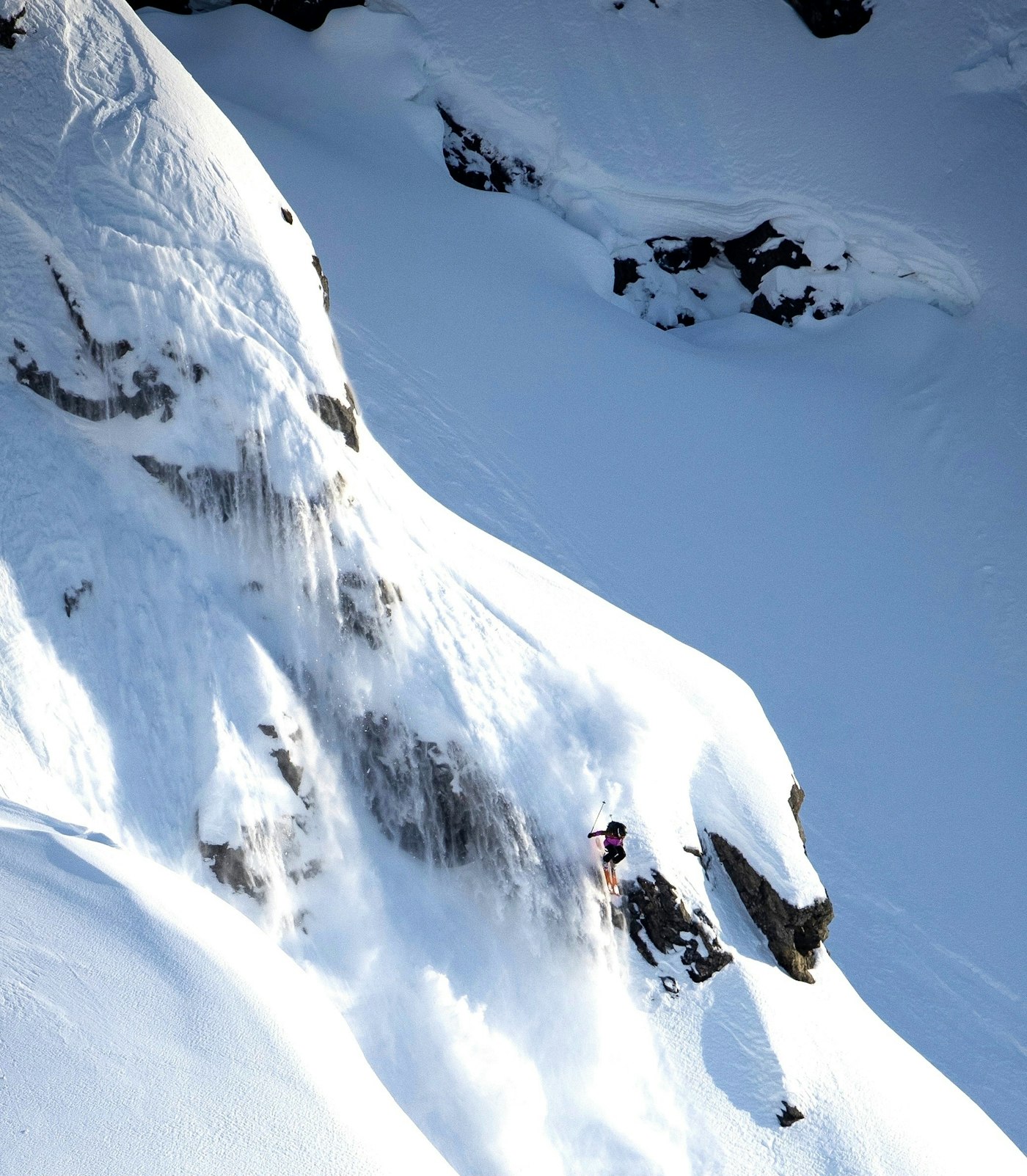
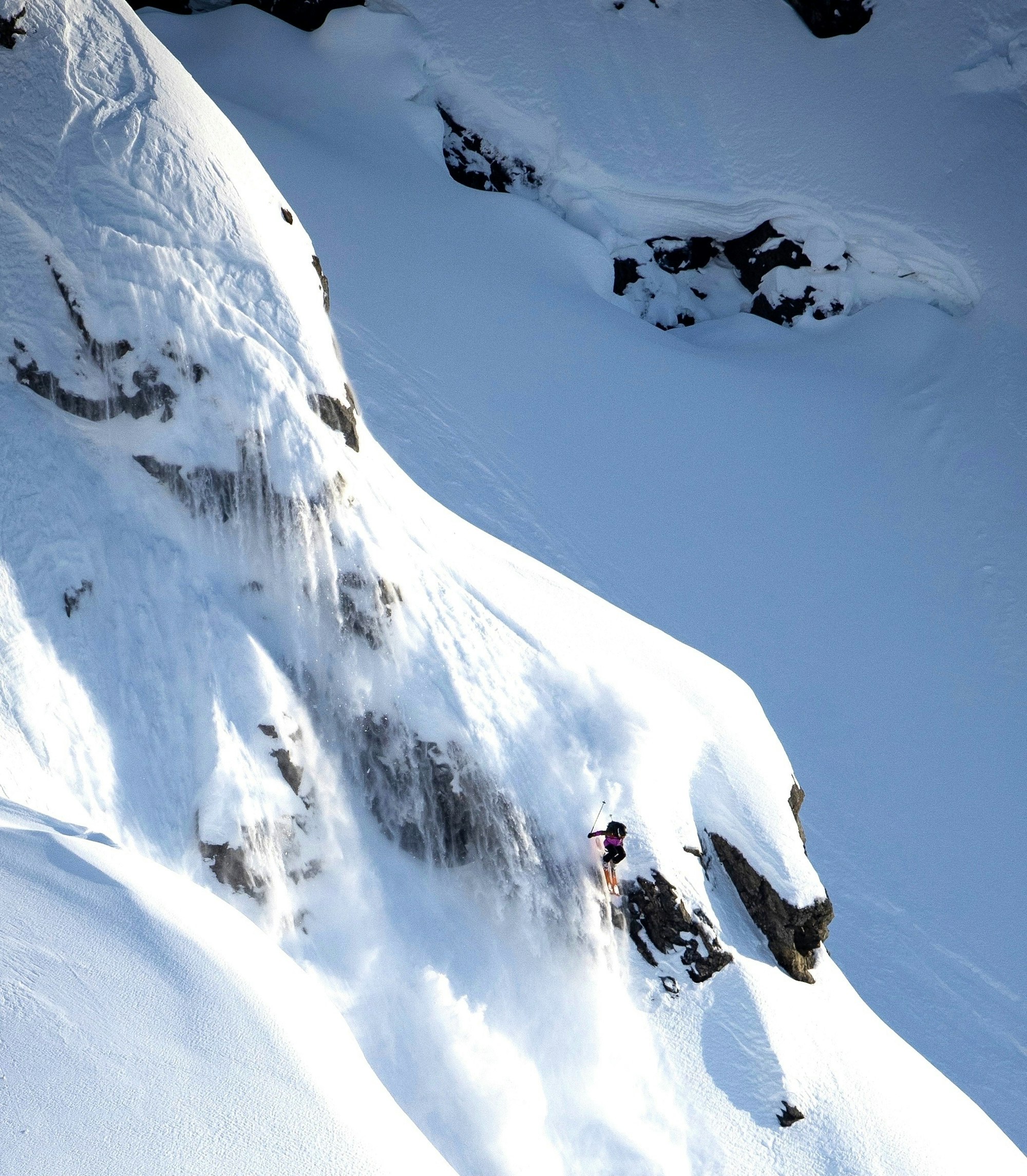
PHOTO: Eric Parker
How are you doing? Where are you currently?
Well currently I am in the Seattle airport but the past few weeks I have been posted up in Alaska and loving it! I was spending all of my time this winter based in Jackson, laser focused on healing and getting strong and by the time the end of February rolled around I was just ready for a change of scenery and an adventure. I packed up my things and headed North to chase AK dreams. Shortly after moving up to Girdwood, Marcus Caston invited me to join him on a ‘Return of The Turn’ episode in my home state of New Hampshire to ski Tuckerman Ravine. Marcus is one of my favorite skiers to watch and has been like a brother to me ever since we became teammates skiing for Blizzard/Tecnica at the beginning of my career. Even though I had just moved to AK, the idea of heading home to ski Tucks, connect to my roots, see my family and get some time in the mountains with Marcus sounded really good for my headspace. I have been resting and rehabbing for months now and I am just craving getting back to doing what I love. So I am sitting here, chatting with you in the Seattle airport, feeling pretty excited to be en route to New Hampshire to meet up with Marcus to ski some ice.
You’ve been staying in Alaska the last couple weeks, what have you been doing up there? How are the conditions?
Alaska has been awesome! I have been exploring new mountains, getting really strong and I have been gaining back a lot of confidence in and out of the mountains that I had lost somewhere along the way. I had a project on my radar for the spring that I was still trying to be a part of and to heal in time for. A teammate on The North Face and I had pitched an AK focused project with Heli hours planned for early March in Haines and early April in Valdez that I was gunning to be back in time for. Part of that project involved me heading up to AK prior to our Heli hours to get myself back skiing in bigger terrain before stepping back into filming. I was feeling on track and psyched but my partner and the creative team I was working with were worried I may be pushing my recovery timeline. They voiced their concerns and we had a long conversation and we decided I would step away from the project and the Heli hours we had coming up. It was a really hard decision to make because I felt and still feel that I am ready to get back to doing my thing. I had been working really hard and treating my body like a temple.
All that being said, the reality is, I was pushing my recovery—safely, with doctors— and I felt okay with it but when you are working with a team you have to take inventory on their opinions and not just your own. If my partners in the mountains felt uncomfortable with my decision making then I would listen and change my approach, the same idea goes with people you are making a film with so I had to honor their concerns. It was heartbreaking because I have been working so hard to get ready and I genuinely felt ready but some things are just out of your control. I realized that sometimes just because you can doesn’t mean you should and so I mourned the loss of a dream trip and refocused in on healing and moving forward. A lot of my time up in Alaska has been spent just skiing for the pure joy of skiing. Reminding myself what is important and what I want to prioritize moving forward.
But maybe this is all a silver lining, opening you up for more opportunities?
Absolutely!! I mean this whole experience led me to pack up my life and pilgrimage to Alaska, leaving a lot of judgment and fear behind and so there is a blessing there if nothing else! It has also allowed me to see endless opportunities for adventure, for my skiing, paragliding and speed riding. It has allowed me to take a step back and really think about stories I want to share and projects I want to put out in the future. The last 5 years have been pretty go, go go for me and it is nice to be able to catch my breath. All of this time off of snow and dealing with hard things has allowed a lot of space for my creativity to bloom. There are so many different ways to make ski flicks. Maybe it is time to break away from the formula and try something new. Maybe we continue to make them a bit more weird, maybe we make them more artistic, more colorful, more inclusive, more real. Maybe we show the human aspects of skiing, sharing something that people can resonate with. Highlighting our similarities as humans whether we are pro skiers or wanting to try skiing for the first time or somewhere in between. I think being honest with my injury on social media has allowed me to connect with people and exchange hope and that feels important right now. I will always keep beautiful skiing as the focus in any projects I create going forward but there are a lot of stories we can tell and lots of ways to show that we’re all just humans trying to connect and live fulfilling lives [laughs].
What has this injury taught you?
It has taught me that I was worrying more about what people in the industry and on the internet wanted more than what I wanted and needed. I suppose that’s how I was conditioned to think, if I made everyone happy I would be happy and turns out that approach wasn’t working and it left my body, mind and soul pretty banged up. Let me be clear, I had been putting that pressure on myself, despite the overwhelming support from my sponsors and I see that now. It is easy to feel very replaceable in the ski industry, especially in the world of ski films. There is no job security and so I found myself in a constant battle to stay relevant and stay in the good graces of everyone because I was fearful that it would all fall away just as quickly as it came around in 2018 after I won ‘King and Queens.’ Prior to this injury and really taking the time to think about it, I don’t think I realized how messed up my thinking was. For the last six years it’s been, “that’ll be good for my career, that’ll be good for my career, that’ll be good for my career.” It was never, “what do you want?”
If you could go back and do anything different in terms of developing your ski career, would you?
I don’t think I would, to be honest with you. I had to learn all of these lessons for myself. We want it so bad as athletes and it makes us okay with all types of crazy things that wouldn’t fly in other industries. Like for instance, working for free and actually paying to get a spot in ski movies. Could you imagine if an actor or actress paid to act in a Hollywood film? Different worlds, I know but still funny to think about. I can only speak to my experience but when TGR said “jump,” I asked “how high” because I felt like if I didn’t do it there were 15 other girls who would die to take my spot and living like that, being fearful of being replaced was a really tough place for me to operate from.
Last January the “I am not good enough” thought was validated when I was dropped from a working relationship with a production company with no warning. Did getting dropped from the athlete roster of a production company mean I wasn’t good enough? No, of course not. I know that now but being so easily replaced was obviously not just a fear made up in my head it was something that does happen in this industry. No matter how hard you work and how long you are part of the ‘family’ at the end of the day it is just a business. That feeling or maybe that worry of not being good enough that had invaded my mind gave me a lot of ‘piss and vinegar’ that allowed me to do some pretty impressive things on skis last season but it also inevitably led to me pushing myself too hard and hurting myself. Again, I have to make this clear; I am not blaming anyone for anything just sharing my personal experience. I take responsibility for getting consumed in meeting expectations and chasing validation. I’m just also taking responsibility for leaving that behind as I head into the next chapter of my career. Maybe there is one thing I would do differently looking back, I think the only thing I would change is to not have been so caught up in what others wanted from me because that’s not what matters [laughs].
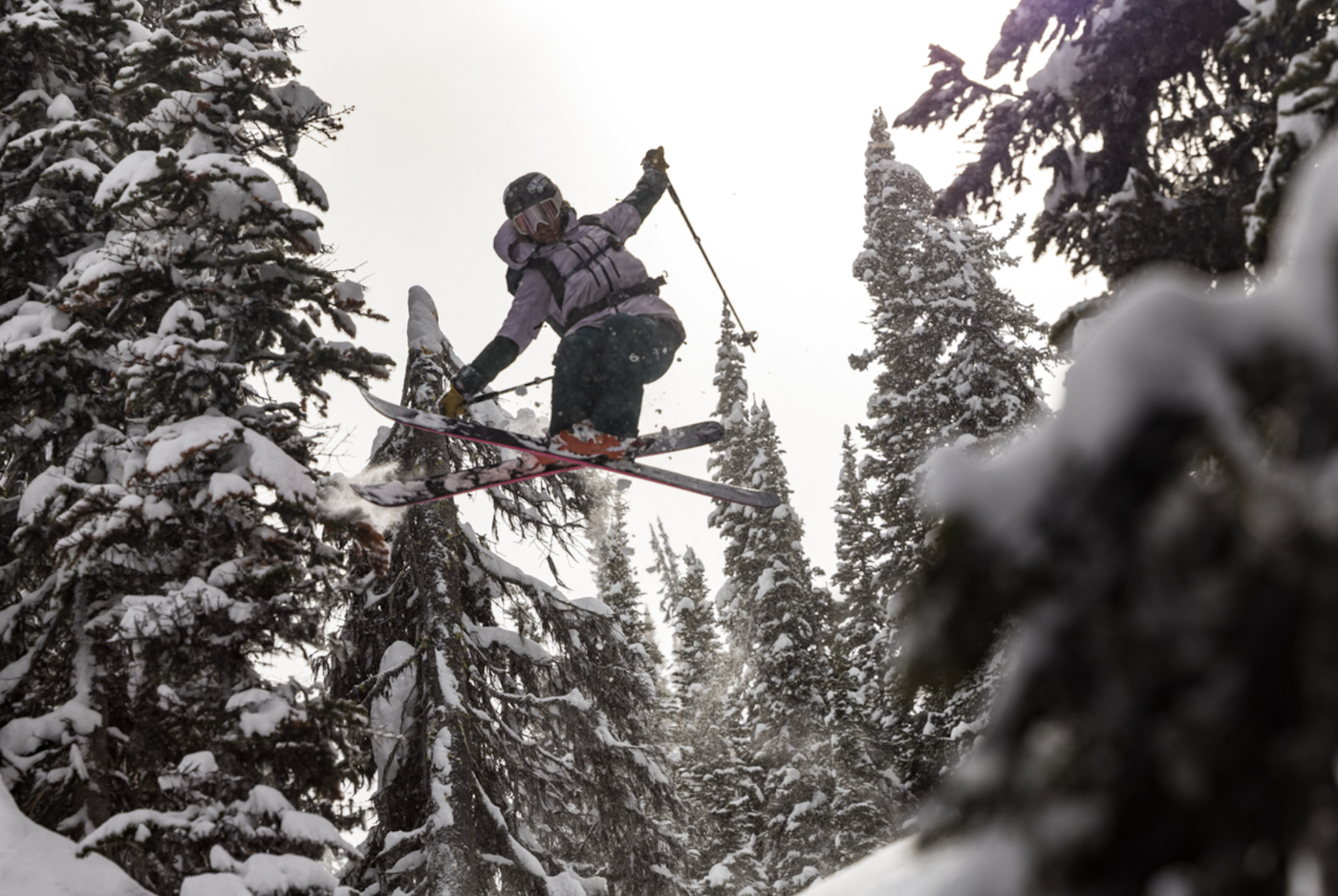
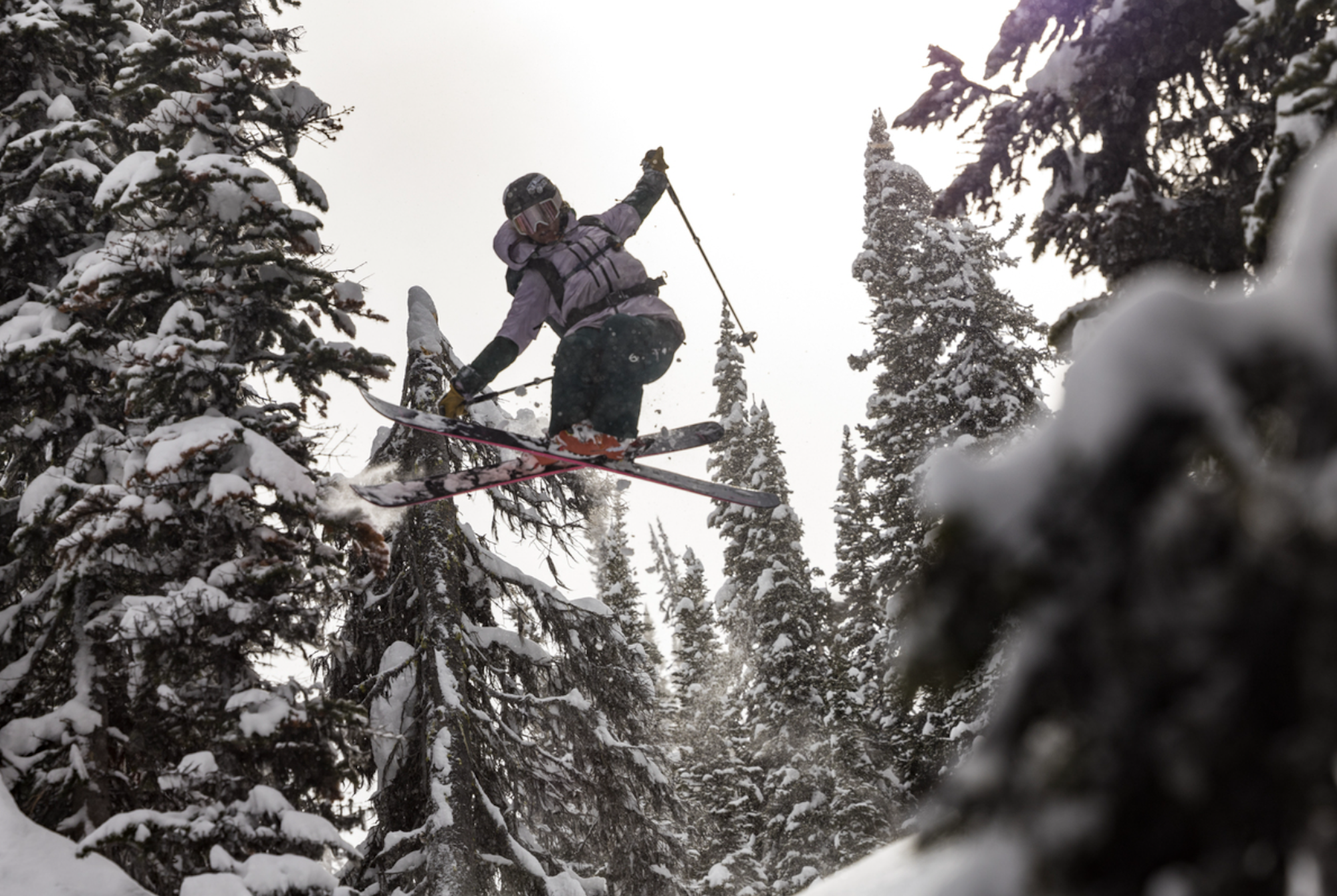
PHOTO: Bryan Ralph
What kind of advice would you give to girls who are currently working at becoming a professional skier?
It’s so complex. There are all the really easy ones: Believe in yourself. Keep working hard. Surround yourself with people you can trust and can push you. But honestly, what I’m learning is that we don’t need to compare ourselves to men. For the longest time I didn’t necessarily want to ski like a girl, I just wanted to be good and equal and I think that mindset actually caused me more pain in the sense that I was never good enough for myself. My style has never been tricks and airs, so when I see a 16-year-old boy throwing triple backflips and I don’t even like mine enough to do them in front of a camera, it’s easy to say “Why am I here? I don’t deserve this.”
I’m not saying we should compare ourselves to women either, I think comparison is our worst enemy, but I would say get psyched on your style, whatever that is. Jim Ryan once told me to just play to my strengths and do what I love and I realized I was wasting so much time and energy worrying about what I thought I needed to do instead of focusing on fostering the parts of my skiing that I am naturally good at and genuinely love doing. I think it’s easy to get caught up in what the industry wants but that almost killed me. I do think it’s important to push ourselves and have goals but I think it’s important to do what you are excited about because that is what will keep you safe and healthy.
I also wish I had a bit more fun. Somewhere along the line I kind of forgot how much I love skiing because it’s also how I was paying the bills and it became a very different game. When you’re trying to make money from skiing, that’s not an easy thing to do, so you feel like you need to be the best to get by. So just try to have more fun with it. When I’m having fun, that shines through. That’s what is so cool, it’s a creative expression. Once I got it into my head that skiing is creative, I felt empowered by that. I’ve been an athlete my whole life but have never really thought of myself as an artist and then when I started looking at skiing as more of an artistic endeavor, that took a lot of pressure off. We’re all out there to have a good time, it can get heavy at times and feels really intense but try not to lose the joy because that’s really the only reason we’re doing it.
There’s a saying out there that comparison is the death of joy—how do you keep from comparing yourself to other athletes, especially when you’re on such a stacked team like The North Face?
I feel like the cool thing about The North Face, at least from my experience, is that a lot of the athletes treat things more like a creative endeavor or lifestyle as opposed to a career. These sports are so much a part of these peoples’ lives and the BS seems to fall away. I’ve never felt more at home than being surrounded by The North Face athlete team in Bishop, California. I have an incredible family and support system that loves me more than anything but I have always felt like a black sheep because I love to do death-defying stuff and scare the shit out of myself and most people think I’m crazy but then all of a sudden I was in a room of people who genuinely understand that. I have a family with my teammates there. There’s no lick of competitive nature on that team and I am so grateful for that. All of my sponsors are the same way. Where I felt the most competition is in the production company world. The North Face has a lot of female athletes on the team, I would argue it’s actually probably 50-50 so there isn’t this feeling that you have to fight for your space because there’s plenty of room for all of us. Whereas in the production companies, until very recently, we all have to agree that there has been the token female in ski movies.
Basically, when TGR and I went our separate ways, I would be lying if I said I wasn’t hurt when I was replaced. And then I was having these negative feelings toward the women who did replace me who totally deserve the chance to be in a ski movie. I’m not proud of that knee-jerk reaction but we have been conditioned to be competitive with each other.
Being a professional skier can get STRESSFUL sometimes, how do you keep your head on straight when it gets chaotic?
I’m not very good at it, to be honest [laughs]. I think that’s why I don’t compete anymore, or never really liked to, because I don’t love that pressure and intensity. I think through this injury, however, because it’s my first injury to happen within ski season—I’ve blown my ACL ski racing prior to becoming pro and broken my leg at the end of a season—but this was the first injury to get in the way of my career and I was also going through a breakup as it happened so I decided to take a break from all substances, including coffee because I’m a masochist [laughs]. I was in the fire and I didn’t numb myself at all and I really sat with my feelings and I learned to breathe through it and trust these feelings of anxiety will subside.
I think one of my goals moving forward is to try to take that calm that I found I can cultivate with me when I’m in these stressful situations. I have gotten good at it on a line, for example, but when I’m getting calls that I might be going to Alaska or I might not, that style of stress I’m still working on managing. On the outside I’m cool as a cucumber but on the inside my mind is racing but it’s because I care so much and froth so hard.. All we can do is take it day by day. So being present in the moment and breaking it up into segments has really helped me believe that I’m capable of what I’ve set out to do. That’s not to say I’ve never had any doubt but I genuinely know that not believing in myself doesn’t serve me.
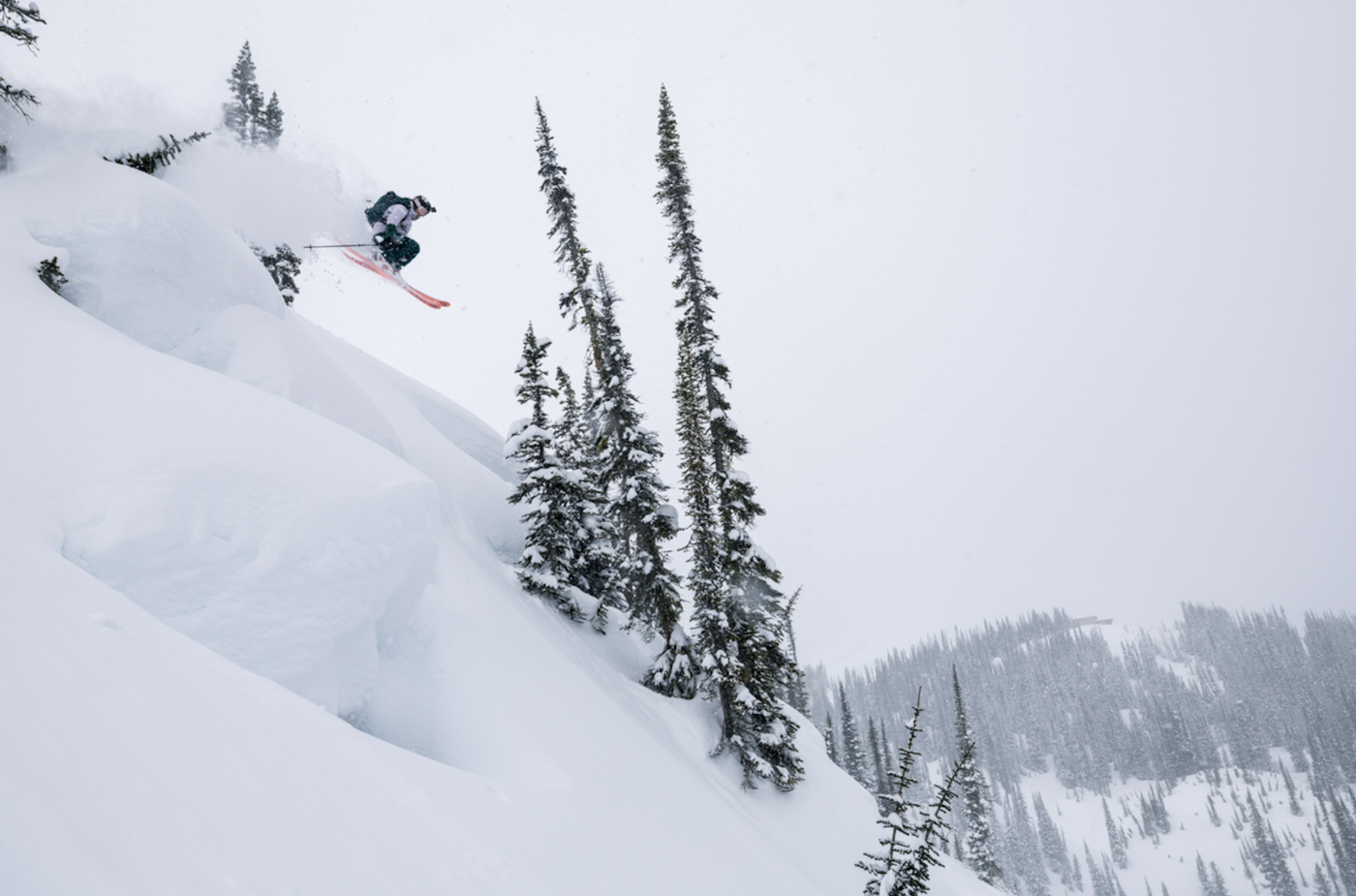
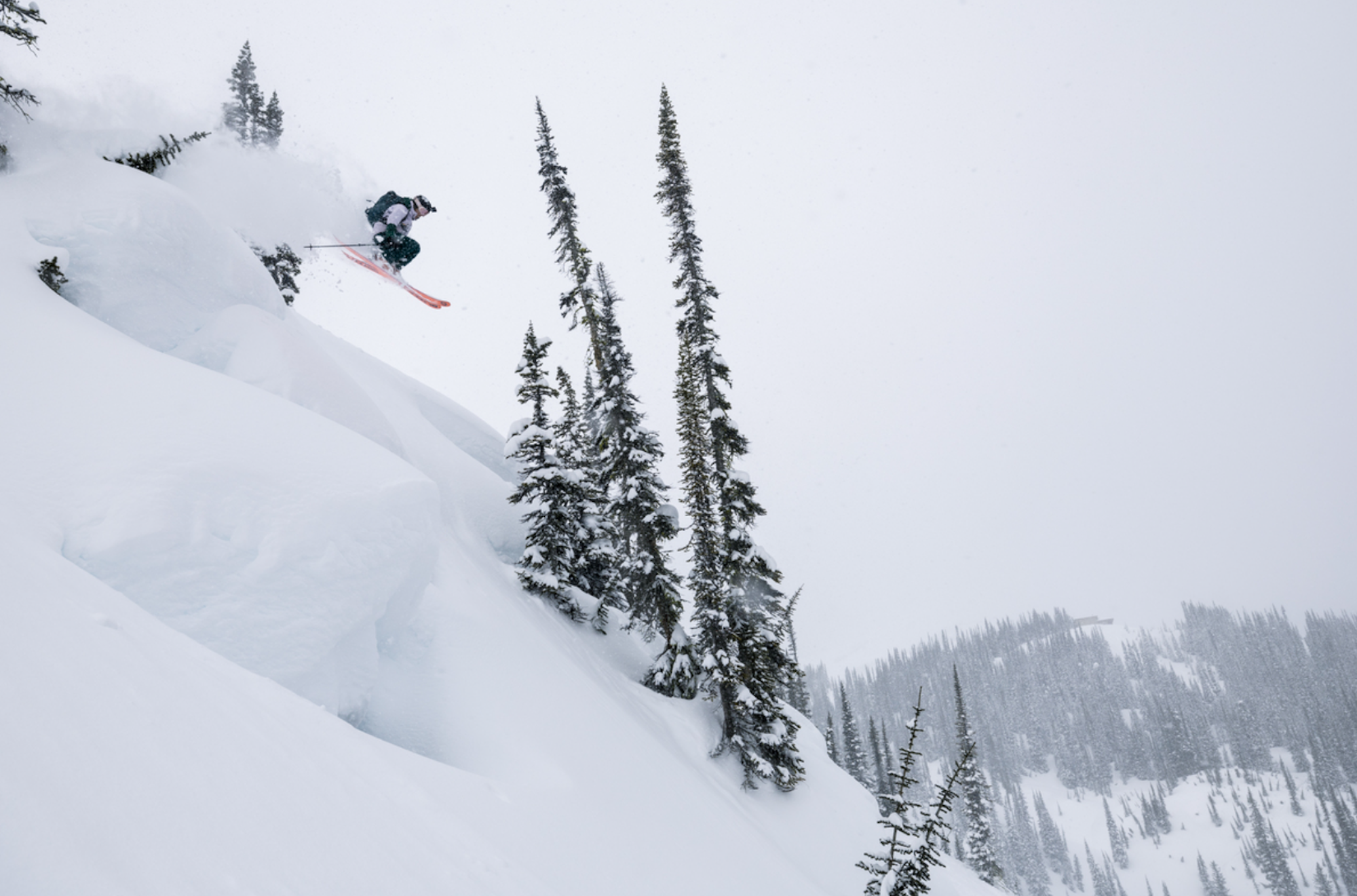
PHOTO: Bryan Ralph
What are some ways you “treat yo self” and how often do you practice self care?
I love self care! Obviously with this back injury it has been easy not to feel any guilt about self care. I love a good massage, I’m really into cold plunging—that one is good for me mentally and physically. You know when you take a big cliff hit and then you have a comedown, that’s how I feel cold plunging is. For a while I was working with an acupuncturist because my nervous system was all jacked up, I think just from the nature of this industry as well as being a stress case but my body was in a constant fight-or-flight mode for years. It’s easy as an athlete to take care of your physical body but trying to do things for all the systems seems important too—I go to therapy, I sleep a lot, I take naps, I like hot tubs. All of my friends will call me if they need a healer because I have every healer’s number in Jackson and I’m creating a ridiculous list of healers in Anchorage and Girdwood [laughs].
Skiing professionally can be a harsh reality sometimes, what is it about this sport that keeps you hungry for more year after year?
The challenge. I know I still have more in the tank and it’s not to prove anything to anyone, I would just like to master my craft. When I am on skis, when everything is flowing and working, that is the most magical feeling in the world. Knowing that I have the ability to get into that flow state and to have the ability to create on skis keeps me coming back for more. Being an athlete is the best career path for me right now because it allows me to prioritize my health. I guess I could do that in another career but this one really requires me to be the best version of myself and I like that. It makes me want to be at the top of my game and do things that really help me grow and I like that motivation and skiing happens to be it for now.
I would also say that skiing has taught me and showed me more in my life than anything else. Getting to travel the world, experience different cultures and places and, realizing how big the world really is. And also being scared a lot and having to work through that. Standing on top of a line there is nobody you can call on, that’s on you, and I think it’s a great metaphor for life because you really have to be able to lean on yourself and I think overcoming fear on my skis has shown me that I am capable of so much more than I could ever imagine. It also allows me to continue my education. I dropped out of college not to chase being a pro skier but because traditional education wasn’t for me. I love to learn, so I continue to take avy courses, I got my EMT this fall—all because I want to be the best mountain partner I can be.
I feel like I was put on this Earth to ski. This fall I was questioning heavily if this pro skiing thing was all worth it. Was it worth the risk, the stress, the lifestyle, the loss? Then when I had an injury present itself in December that required I take a break from skiing to heal I was removed from it all and I realized I am a fraction of the human being that I can be when I remove myself from the mountains. When I started getting back into the mountains, everything about me lit up. My skin got color back, my eyes got clearer, I felt good, I was more social, funnier, thoughts were flowing and I was more creative. There’s just so much that the mountains give me, so it was actually a cool process to be out of them for the longest period I’ve ever been out of them and notice there was a genuine difference in who I was as a person. I know I could find that elsewhere but right now I just don’t want to.
![[Q&A] Getting real with Caite Zeliff](https://www.datocms-assets.com/163516/1751485397-bw-headshot.jpeg?auto=format&bg=FFFFFF&w=100)
![[Q&A] Getting real with Caite Zeliff](https://www.datocms-assets.com/163516/1751485397-bw-headshot.jpeg?auto=format&bg=FFFFFF&w=1200)
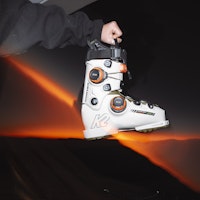
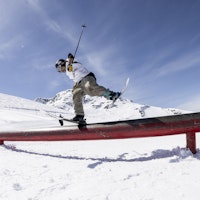
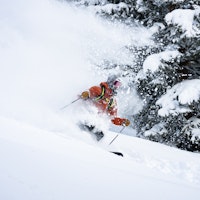
![[FIRST LOOK] New 2027 Skis and Outerwear From Rossignol](https://www.datocms-assets.com/163516/1771280782-2026_fs-firstlook-deck.png?w=200&h=200&fit=crop)
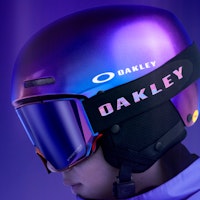
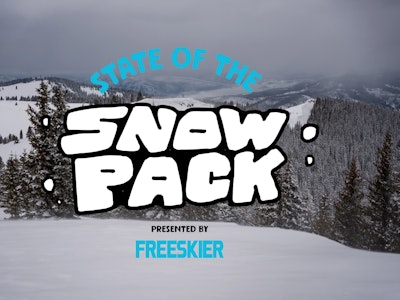
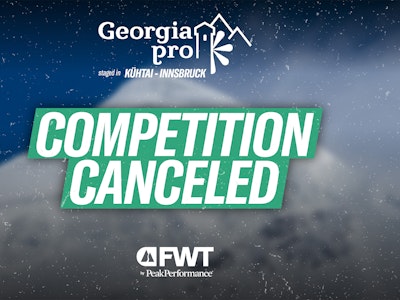
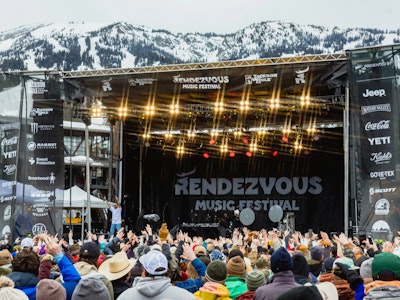
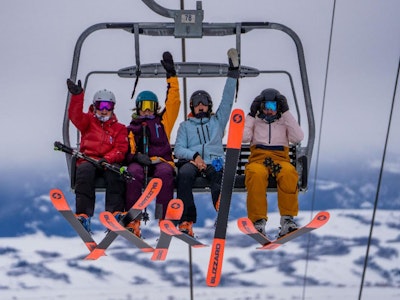
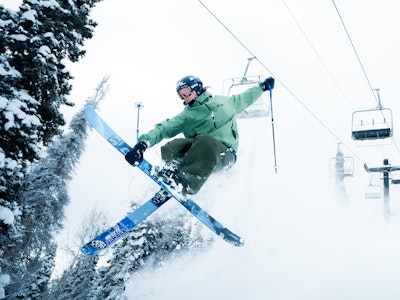
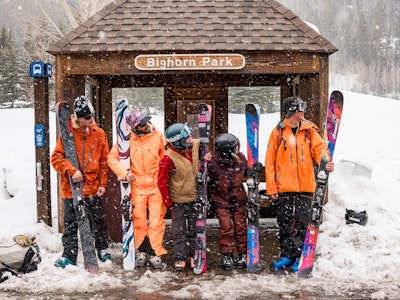
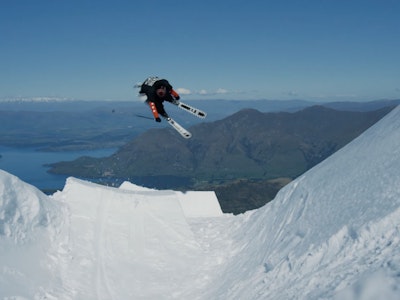
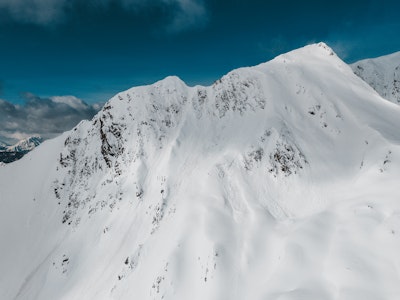
![[Q&A] Getting real with Caite Zeliff](https://www.datocms-assets.com/163516/1751485397-bw-headshot.jpeg?auto=format&bg=FFFFFF&w=2000)